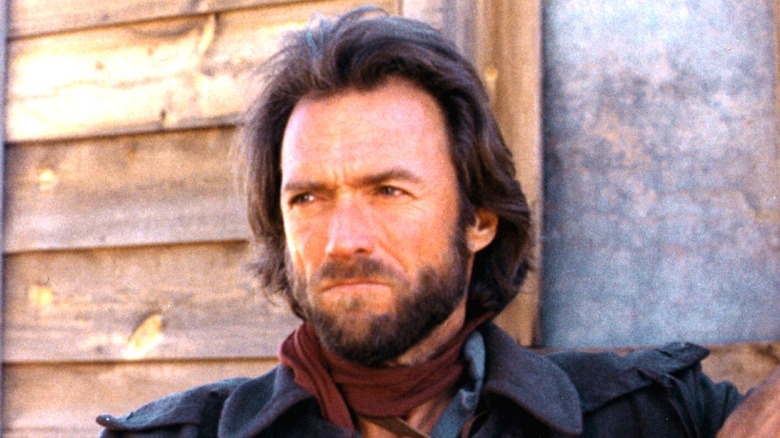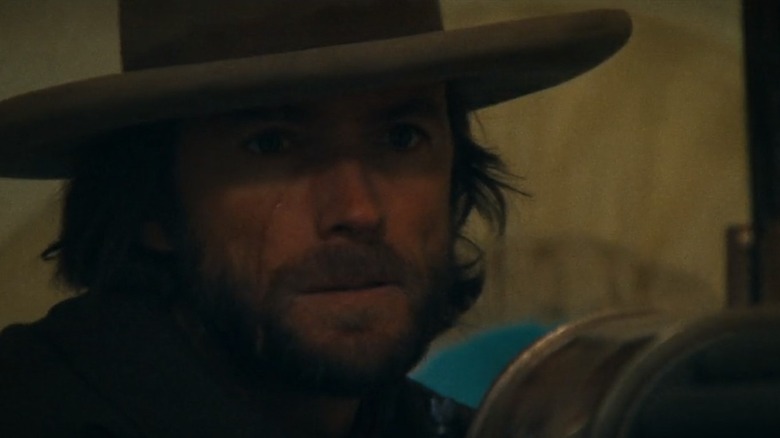Is The Outlaw Josey Wales Based On A True Story?
In 1976, Hollywood continued to specialize in the import and export of movies where Clint Eastwood holds a handgun on the poster. This time around, the film in question was "The Outlaw Josey Wales," the most testosterone-fueled western epic in history to feature a gunfighter with the first name "Josey" and a last name that means "basically England."
"The Outlaw Josey Wales," which is currently experiencing a resurgence in popularity as a Netflix streaming offering, tells the story of the eponymous outlaw Josey Wales. Wales, played by Clint Eastwood, is a humble-if-intense Missouri farmer, thrust into a world of revenge and gatling guns when his noble, salt-of-the-earth family is murdered by consarned Union guerrilla fighters. He rides out to show those nogoodniks what's what until the end of the Civil War. "Fun's fun and all, but it's time to stop killing each other," says the government. "Nice try," says Wales. We're paraphrasing.
More shootouts follow. Josie, thanks to his cunning strategy of not surrendering even after being asked politely, survives an ambush that wipes out his war buddies. Wales finds a new band of buddies and keeps on keeping on, slaughtering the folks he holds responsible with gritty enthusiasm. It's all very impressive. But is it true?
We reckon not.
There's not much truth to any part of Josey Wales
"The Outlaw Josey Wales" wasn't based on a true story. It's an adaptation of a 1972 novel, semi-helpfully titled "The Rebel Outlaw: Josey Wales," and as exciting as it might be to learn that there was truth behind the story of a righteously vengeful widower setting out to engineer some frontier justice, the creation of the novel is filled with nearly as much high drama.
The book was written by Forrest Carter, an author claiming Cherokee heritage, who would go on to tell his own story in the memoir "The Education of Little Tree," released the same year as Eastwood's movie. Around the same time, the New York Times ran a story about the author in which they pointed out the astonishing similarities between him and staunch pro-segregationist Asa Earl Carter, who'd made tracks from his native Alabama after a spectacularly dismal run for governor in 1970. Asa and Forrest Carter had lots in common, even sharing an address of all things. Despite Forrest's insistence that he was just a country boy with a love of the written word, the evidence was substantial, and the supposed Native cowboy was outed as a founding member of a splinter group of the Ku Klux Klan and ardent supporter of white supremacy. It's a fascinating story that peaks with Carter's decision to be interviewed by Barbara Walters on national television, apparently thinking that he wouldn't be recognized if he wore a big enough hat.

